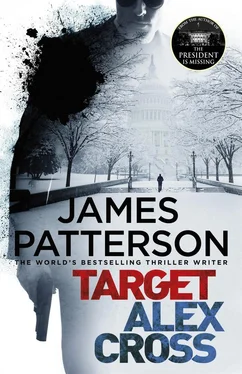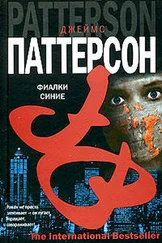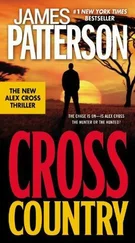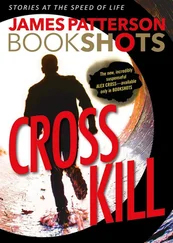So the Potters had driven on toward Glasgow in northeast Montana, listening to the news coverage on the satellite radio. Word of President Larkin’s retaliatory cyberattack on the other nations had shocked them both.
“I want to get home, Dana,” Mary said in a fretful voice. “Before the world goes all to hell on us. My God, what have we done?”
He got angry. “We did a job to save our son’s life. That’s what we did.”
She got angrier. “They’re saying we may have helped start World War Three!”
“I’m a professional. You’re a professional. I did a job, and so did you. And we did it for a noble purpose.”
Mary said nothing, just stabbed off the radio. “I want to call home.”
“No sat phone,” he said firmly. “Radio silence until we’re in the...”
On the GPS navigation screen in the truck’s central console, he saw what he was looking for and slowed, feeling the trailer slide a little behind him before he came to a full stop and turned north onto Frenchman’s Creek Road.
The gravel road had not been plowed. They spun and almost jackknifed the trailer in nine inches of snow. But before they could go in the ditch, Potter wrestled the pickup and trailer back to the middle of the road.
When he was a full mile north of the Hi-Line, he stopped in a spot out of the wind, and they donned wool hats, quilted Carhartt parkas, and heavy leather mitts lined with sheep fleece. Both of them had already changed into insulated bib overalls and boots at the last gas stop.
While Mary saddled and fed the horses grain, he chained up all four tires and changed the stolen Wyoming plates for Montana tags. Despite their heavy clothes, they were cold to the bone when they climbed back in the pickup and started north again.
An hour later, the road doglegged and dropped down beside Frenchman’s Creek itself. The vague outlines of a ranch house and barns appeared through the snow.
Potter stopped and used binoculars to look at the windows for lights inside.
“She’s still in Arizona, right where she should be this time of year,” he said after a few minutes.
“Let’s get it over with, then,” Mary said. “We’ve got a cold ride ahead of us.”
They rolled into the ranch yard. Potter saw no tracks anywhere.
He stopped near a shed between the house and the barn, said, “Good a place as any. You clean up inside, and I’ll get the horses unloaded. We’ll put the truck and trailer back where we found them, and we’re out of here. No one the wiser.”
His wife nodded absently and put on latex gloves. The windows were already caked in rime, and Mary was spraying and wiping down the interior of the pickup when Potter climbed out.
The wind howled through the ranch yard. With the wind chill, it had to be fifty below.
Potter ducked his face away from the wind, went around the back of the horse trailer, and opened it. He got the horses out one by one and tied them to a tree on the leeward side of the ranch house.
The wind gusted. As he came around the porch to shut the trailer, he put up his arm to shield his eyes and face from snow.
At first Potter didn’t see the old woman in the wheelchair on the porch, buried under wool clothes and quilts, wearing ski goggles, and aiming a lever-action hunting rifle at him.
When he finally spotted her, he threw up his hands and said, “Don’t shoot!”
She wiggled her lower face out from beneath a scarf, revealing sagging gray skin and an oxygen line running to her nostrils. She glared at him venomously.
“That’s my damn truck!” she shouted in a thin, bitter voice. “That’s my damn trailer too!”
Potter raised his leather mitts higher, thought fast, and said, “Please, Mrs. Linney, I work for the Montana Department of Justice. The truck and trailer were found abandoned down the Bitterroot Valley. Didn’t anybody call to tell you I was coming?”
The old lady’s glare did not diminish, but she lifted her head a few inches off the rifle sights before saying, “Phone’s been out since the storm hit. And the electricity. And the furnace.”
“I’m sorry, ma’am. Don’t you have anyone to help you?”
“My son’s coming for me.”
“Could you lower the gun, Mrs. Linney? It’s making me nervous.”
“You got ID? Badge?” she said, keeping the rifle trained on him.
“ID, no badge,” he said, lowering his arms. “The company I work for does contract delivery work for the state. I have papers for you to sign too. Can we go inside? Get out of the wind?”
Mrs. Linney hesitated until a frigid gale hit them. She grimaced and gestured with the rifle toward the closed front door. “You first.”
“Thank you, ma’am,” Potter said. He bowed his head into the biting, whistling wind and started toward the door.
She’s an ornery old cuss, he thought, but he made sure he smiled at her over the barrel of her gun, which followed him in a way that let him know she knew how to use it. He twisted the knob, pushed the door open, and stepped into a center hallway with old wide-planked wood floors.
There was a modern kitchen at the far end. He walked past a room with a television to his right and an old-fashioned formal parlor to his left. Both rooms were neat, tidy.
He stopped and pivoted to look back at Mrs. Linney, who was driving her motorized wheelchair with her left hand while her right gripped the rifle, which was now in her lap. That helped.
“Here,” Potter said, starting toward her. “I’ll shut the door for you.”
“No need,” she said, and she threw the chair in reverse and pushed the door shut.
She stared at him a moment, then pulled down her scarf. Her breath came in clouds. Even without the wind, it had to be near zero inside.
“Your pipes freeze?” he asked.
“Drained them, poured antifreeze down the lines,” she said. “I know how to survive up here.”
“I bet you do.”
She drove a few feet toward Potter and then stopped.
“Let’s see that ID and those papers,” she said.
He smiled again, unzipped his parka, and reached inside for his wallet. He dug out his fake Wyoming driver’s license and started toward her.
Mrs. Linney directed the gun toward him. “Just hold it up from there.”
Potter did.
“Wyoming?” she said.
“We deliver to both states and Idaho too. I kept my residence in Cheyenne because there’s no state income tax.”
“Montana takes ten percent of what’s mine,” she said, sounding disgusted. “What about those papers?”
Potter patted his chest, acted confused, said, “Darn, they’re in the truck. Can I get them?”
Mrs. Linney raised the rifle, aimed at his chest, said, “You do that.”
She put up the wool scarf, retreated, and reached around to twist the doorknob. The wind blew the door open. She drove a few feet toward him so the door was pinned against the wall, and then started to back out onto the porch.
Potter was beginning to regret his decision to borrow Mrs. Linney’s truck and trailer to bring his horses to Texas. But she was supposed to be in Tucson all winter.
Before Mrs. Linney’s wheels crossed the doorway, Mary stepped up behind the old bird, reached around, and tore out her oxygen line before clamping a leather mitten across her mouth and nose.
Instead of screaming and struggling, Mrs. Linney aimed wildly at Potter and pulled the trigger. The gun went off. Plaster exploded off the wall next to him.
She tried to run the lever. But he took two big strides and pinned the rifle against her thighs. Mrs. Linney showed no terror at being trapped and smothered. She just glared at him, making sputtering noises of hatred in her throat.
“Poor thing,” Mary said, keeping her grip firm. “Chair battery ran down in the cold. Oxygen tank empty.”
Читать дальше












